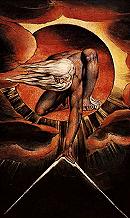|
|
Post by Kensterberg on Dec 27, 2005 21:41:23 GMT -5
TDD -- Again, my undergrad degree is in anthro, I've got a good friend who teaches arch. at UTEP, and I have tried to stay fairly current on trends in studies around the Mediterranean, particularly those involving the Bronze or Iron ages, as those were/are my interests in Greek arch. No, Biblical Arch. isn't my top area of expertise, but I do have some background in it, and in how sites are cross-dated, etc.
Perhaps most importantly, I have an excellent understanding of how arch. sites are excavated and interpreted. I've got some understanding of the degrees of certainty about which we can make certain statements. Also, my studies on the Greek Bronze Age provide an excellent comparison as to how oral traditions can relate to the actual history and lifestyles of that culture, or not. Just as it would be ridiculous to deny that much of The Iliad reflects actual Mycenaean culture, it makes no sense to deny that at least some aspects of the Old Testament reflect actual Hebrew culture and history. However, no one would seriously argue that "The Wrath of Achilles" ever substantially happened, it is ridiculous to think that the Old Testament is the literal historic truth. Both have a kernels of truth to them, but both stories have been crafted and shaped over millenia.
Now notice D, when you ask me a question like this, I respond directly to it. We've asked you lots of questions which you've never directly answered. Instead, you often use the rhetorical device of asking us unrelated questions, which in reality only beg more questions.
You ask me if I've ever been to a Biblical Arch. conference, and I can honestly say "no, I have not." Have you? If so, what one(s)? Who were the speakers and what were their credentials? What kind of criticisms have been leveled at this "new work" which has so impressed you? After the sources that you used to support your position that Darwinian evolution doesn't begin to explain how species change over time, I (and everyone else here, I think) am more than a bit skeptical as to just how legitimate these sources/conferences are.
And remember, when you are making extraordinary claims, you need to provide extraordinary proof. You haven't. So we don't believe you.
|
|
|
|
Post by Kensterberg on Dec 27, 2005 21:50:47 GMT -5
TDD -- from the calendar site you gave above: In ancient Israel, the religious leaders would determine the date for Passover each spring by seeing if the roads were dry enough for the pilgrims and if the lambs were ready for slaughter. If not, they would add one more month. webexhibits.org/calendars/calendar-jewish.htmlThere's an excellent discussion of the length of the Jewish year, when a new year begins, and the extremely complicated formulas used in this calendar towards the bottom of the same page. |
|
|
|
Post by phil on Dec 27, 2005 21:52:58 GMT -5
Because at the moment, you just seem to be bringing in a whole bunch of information
that has absolutely nothing to do with what we were debating.
And remember, when you are making extraordinary claims,
you need to provide extraordinary proof.
You haven't. So we don't believe you.
That pretty much summarizes all of Tudeda's posts ... !!
|
|
|
|
Post by Kensterberg on Dec 27, 2005 21:56:05 GMT -5
From the Jewish Library site TDD gave above:
A significant feature of the Essene sect is its calendar, which was based on a solar system Of 364 days, unlike the common Jewish calendar, which was lunar and consisted Of 354-days. It is not clear how the sectarian calendar was reconciled, as was the normative Jewish calendar, with the astronomical time system.
Therefore, the mainstream Hebrew calendar, both now and in the time of Christ, was a lunar one.
Also, Dee, you mentioned that some people here were calling Passover a Christian tradition. I have no idea what you are talking about here. Passover is a Jewish holiday, and I can't find where anyone here said anything different.
|
|
|
|
Post by Nepenthe on Dec 27, 2005 22:02:47 GMT -5
|
|
|
|
Post by Galactus on Dec 27, 2005 22:09:09 GMT -5
Jesus, can you read? I swear to christ. IT STARTS ON THE SAME DAY ON THE JEWISH CALANDER NOT OURS!!!
|
|
|
|
Post by Kensterberg on Dec 27, 2005 22:11:31 GMT -5
Discussion of the Church of the House of Peter, which I mentioned having learned about over the holiday via The History Channel: www.jewishvirtuallibrary.org/jsource/Archaeology/stpeter.htmlTDD -- glad to see that you've proven Rocky's point that Passover is on different dates on the Julian Calendar every year, while on the Hebrew Calendar it falls on the same date every year. |
|
|
|
Post by Nepenthe on Dec 27, 2005 22:11:43 GMT -5
From the Jewish Library site TDD gave above: A significant feature of the Essene sect is its calendar, which was based on a solar system Of 364 days, unlike the common Jewish calendar, which was lunar and consisted Of 354-days. It is not clear how the sectarian calendar was reconciled, as was the normative Jewish calendar, with the astronomical time system.Therefore, the mainstream Hebrew calendar, both now and in the time of Christ, was a lunar one. Also, Dee, you mentioned that some people here were calling Passover a Christian tradition. I have no idea what you are talking about here. Passover is a Jewish holiday, and I can't find where anyone here said anything different. No I believe DED mentioned that I viewed everything from a Christian perspective. When clearly the Essene Calendar was NOT a Christian Calendar. And they indeed celebrated their passover at the same time every year, meaning the same day every year. Ken, the Babylonian Calendar that the Jews adopted after the captivity was indeed a lunar calendar. Whether they were actually using the lunar cycle to calculate the Passover at the time of Christ is another question?? An accepted date for the crucifixion has indeed been April 3rd and you can even find that in your precious wikipedia Ken. en.wikipedia.org/wiki/April_3Also Newton did some work on this if I am not mistaken. |
|
|
|
Post by Galactus on Dec 27, 2005 22:12:35 GMT -5
Passover begins on the 15th day of the Jewish month of Nissan.
From the same website.
|
|
|
|
Post by Nepenthe on Dec 27, 2005 22:12:44 GMT -5
Discussion of the Church of the House of Peter, which I mentioned having learned about over the holiday via The History Channel: www.jewishvirtuallibrary.org/jsource/Archaeology/stpeter.htmlTDD -- glad to see that you've proven Rocky's point that Passover is on different dates on the Julian Calendar every year, while on the Hebrew Calendar it falls on the same date every year. Ken we don't use a Julian Calendar, we use a Gregorian Calendar. |
|
|
|
Post by Nepenthe on Dec 27, 2005 22:14:24 GMT -5
Passover begins on the 15th day of the Jewish month of Nissan. From the same website. Thats right and the date of the 15th day of Nissan varies from year to year because of the lunar cycle. |
|
|
|
Post by Kensterberg on Dec 27, 2005 22:16:05 GMT -5
DOH! My bad ...
Since we've been talking circles around the whole Hebrew calendar, dating Passover, when was Jesus born, etc. for, oh, ALL DAY! let's see if I can summarize.
On the one hand, we have the board majority view, which consists of Mantis, Rocky, Phil and myself arguing the following.
1. We don't know exactly when Jesus was born.
2. Early Christians adopted the existing pagan winter celebrations, including their traditional trappings, as the holiday to commemorate the birth of Jesus.
3. Passover falls on the same day OF THE HEBREW LUNAR CALENDAR every single year, which means that it falls on different days of the modern Gregorian Calendar each year.
On the other hand, we have TDD arguing the following:
1. Jesus was born on September 29. She hasn't said what year this was in. She also states that Jesus would have been conceived on or around December 25. The rest of us have no idea why or how this is relevant.
2. Christmas ... well, bloody hell, I've got no clue what Dee's position on Christmas as a pagan holiday co-opted by Christians at this point.
3. Passover ... um, okay, once again I'm stumped here. It looks like she is now agreeing that the Hebrew calendar is lunar, and thereby can have the same date for Passover each year, which would then place it on a different date each year on our calendar. Also, she seems to be arguing that there is uncertainty as to what calendar the mainstream Hebrews used in the Second Temple period, simply b/c the Essenes (the sect believed to have authored the Dead Sea Scrolls) apparently used a different calendar. She makes this argument in spite of the fact that the Essenes were a fringe Jewish sect, and that the specifics of how their calendar worked are a mystery, according to one of the web pages she cited earlier. She also makes this argument in spite of the fact that one of her cites also describes the Hebrew calendar as having been in effect since the sixth century B.C.E., which would ergo mean that it was the calendar in use by mainstream Jews during the time of Jesus.
Did I misstate anyone's position? If so, please concisely describe my error. If not, I'm done here.
|
|
|
|
Post by Galactus on Dec 27, 2005 22:18:47 GMT -5
Passover begins on the 15th day of the Jewish month of Nissan. From the same website. Thats right and the date of the 15th day of Nissan varies from year to year because of the lunar cycle. No, it's because of the calender you ding bat, Rocky has only explained about five times. |
|
|
|
Post by Nepenthe on Dec 27, 2005 22:21:34 GMT -5
From the Jewish virtual Library: When Holidays Begin All Jewish holidays begin the evening before the date specified. This is because a Jewish "day" begins and ends at sunset, rather than at midnight. If you read the story of creation in Genesis Ch. 1, you will notice that it says, "And there was evening, and there was morning, one day." From this, we infer that a day begins with evening, that is, sunset. For a discussion of why Jewish holidays occur on different days every year, see Jewish Calendar. www.jewishvirtuallibrary.org/jsource/Judaism/calendar.htmlFrom NASA a full explanation on the history and of and the use of the Hebrew Calendar and how dates are calculated. sunearth.gsfc.nasa.gov/eclipse/SEhelp/calendars.html#Hebrew |
|
|
|
Post by rockysigman on Dec 27, 2005 22:22:50 GMT -5
Passover begins on the 15th day of the Jewish month of Nissan. From the same website. Thats right and the date of the 15th day of Nissan varies from year to year because of the lunar cycle. Oh my fucking god. On the Hebrew calendar, the 15th day of Nisan falls on the same day every year. Can you guess what that date is? That's right, it falls on the 15th day of Nisan. All you're doing is repeating that the Hebrew calendar and the Christian calendar are not the same and don't necessarily line up with each other. You seem to be having trouble understanding that the Hebrew calendar has absolutely nothing to do with the Christian calendar. Your insistance that Passover falls at a different point on the Hebrew calendar every year is contradicted by the fact that you just acknowledge that it always starts on the 15th day (or actually the night of the 14th) of Nisan. |
|





